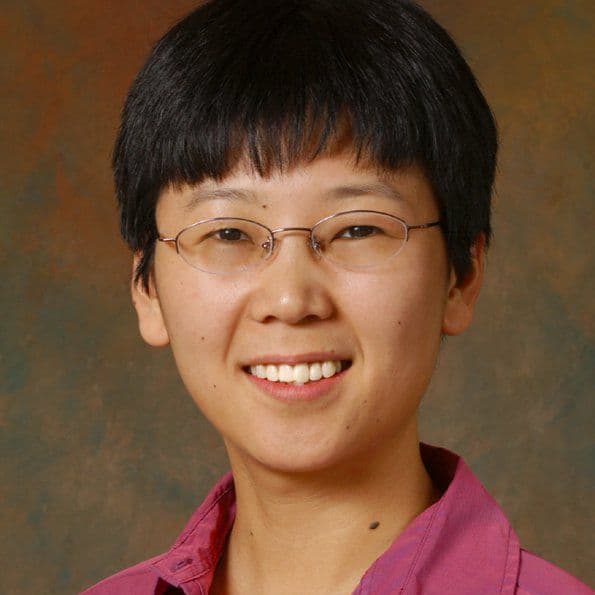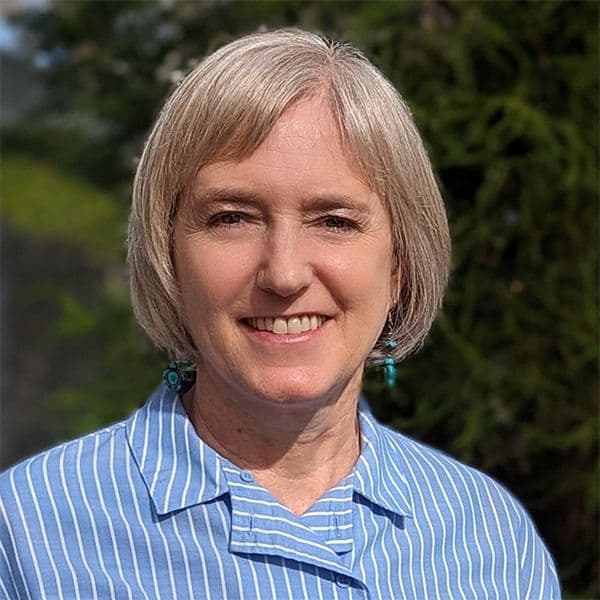News
May 11 '25
Bridging Science and AI: Inside the AIBridge Training Experience
#AIFS
#Education

One thing we know about research is that it takes time. Define your parameters, run a trial, collect data, observe the results. Revise, refine, repeat.
Imagine being able to simulate hundreds of experiments in minutes—rather than days, weeks, or even years. What if a predictive model could help you narrow thousands of possible variables down to just a few, so you could begin your experiment with the most promising options?
These are some of the ways artificial intelligence (AI) is accelerating scientific discovery. AI isn’t just a tool for computer scientists or a shortcut for office tasks—it has the potential to transform research in every domain, from agriculture to nutrition.
AIBridge Boot Camp, developed by AIFS co-PI and AI cluster lead Prof. Xin Liu, introduces non-computer science researchers to AI and machine learning.
“AIBridge really taught me how to think about machine learning and provided an incredibly strong base for how I have thought about it through much of my coursework and research over the past few years,” says Aaron Guerra, a 2022 participant.
The boot camp bridges the gap between AI and science across domains, allowing researchers to employ new tools to facilitate discovery.
“I am a veterinarian and professor of infectious disease epidemiology and am increasingly interested in using AI in my team’s research," says Prof. Beatriz Martinez Lopez.
"Fortunately, I was able to attend AIBridge in June 2024 and it was a completely delightful experience. I totally recommend the boot camp to anybody who wants to get more familiar with Python coding and learn the foundations of machine learning!“
At the 2024 AIBridge Boot Camp on the UC Davis campus, over 50 researchers, composed primarily of faculty, postdocs, Ph.D. students, and staff, came together to learn how to harness the unique power of AI and apply it to their own research.
The boot camp is more than a series of lectures. Each day blends guided instruction with hands-on labs—reinforcing concepts through direct experimentation and practice.
Over five days, participants learn:
- basic Python programming
- classic supervised and unsupervised machine learning algorithms
- data and feature processing
- machine learning pipelines
Additional instruction varies at each boot camp depending on audience interest and current AI topics. This year, discussion expanded to include the application of ChatGPT and diffusion models.
AIBridge Boot Camps are strengthened by the dedication of exceptional assistants—past participants who support future boot camps. During the UC Davis session, Jack Fan and Samuel Ren were assistant lecturers, and Michelle Dong and Lily Shi served as teaching assistants (TAs).
Dr. Hanna Lee from USDA noted, “Your young AI team is very impressive and talented. They deserve a big round of applause.”
Boot camp students learn to program machine learning models and process data, then they’re challenged to consider how AI can be applied in their own research.
On the last day of the UC Davis AIBridge Boot Camp, participants presented how they would use what they learned. Presentations discussed a wide variety of applications, including food science, genetics, and eye disease. Some even began their implementation during lab time!
“The students were really engaged with the material, asking a lot of questions and trying their best to understand,” remarked Lily Shi, who has taught at two library sessions and TA’d for the Davis boot camp. “It’s amazing to see how much they can learn and how they apply what they learn to their own projects and their own research in ways that I had never thought about.”
One feature that makes the AIBridge Boot Camp particularly effective is the real-time support from the instructional team.
“I think the real benefit of this camp comes from the immediate, in-person help from experienced coders,” explained Samuel Ren, who has helped at nearly every session from the beginning of AIBridge. “A previous student spent 3 hours on one line of code. With AIBridge, you can get a pair of expert eyes on your code instantly, making the whole process go a lot smoother.”
The instructional team focuses on continuous improvement, considering feedback from participants and monitoring real-time changes in the evolution of AI applications.
“It’s really a very unique project to work on every single session. We started teaching before we had ChatGPT, and now we’re at a point where we can even use ChatGPT to infuse our lectures and labs with a bit more spice and energy. To see that type of evolution is really something special,” noted Jack Fan, who has taught at Davis, Cornell, and Bentley and runs AIBridge’s Northeast chapter.
In addition to the final presentations, the last day of camp included a spirited AI-themed game of Jeopardy—a fun way to review the week’s material.
The AIBridge program has received many positive comments, with glowing feedback touting the event as a “welcoming and very enjoyable experience” and a “quick, detailed and easily digestible overview of AI.”
“The AIBridge program has been a tremendous success. Professor Liu is an amazing teacher. The TAs are young, energetic, and talented. They put together an exceptional program. The lectures and labs are interesting, well-designed, and well-organized.
Despite my limited knowledge of artificial intelligence and machine learning and lack of prior experience with Python programming, I have learned enough to comprehend literature related to machine learning in my field and feel confident collaborating with colleagues on future machine learning projects.
The AIBridge program has been well worth my time, and I am grateful to Professor Liu and the TAs for the wonderful experience.“
- Prof. Zhiliang Fan














